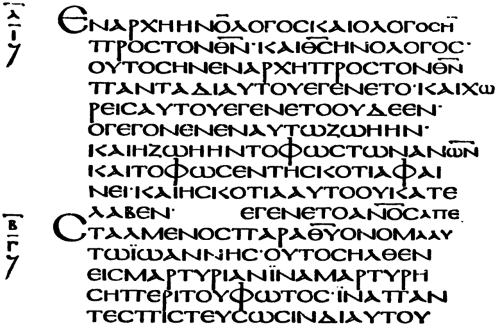
Of the many significant documents on display at the British Library, Codex Alexandrinus does not catch the eye. There are no illuminations, no gold leaf or fancy calligraphy. All that it presents to the viewer is line upon line of uncial Greek text. Nevertheless, to me this document stood out from all the others, both because it was written in Greek, and because of its great significance in New Testament textual criticism. It is remarkable because it contains nearly all of the Septuagint and New Testament, unlike most other surviving Greek texts, and it is quite old, having been written in the fifth century.
The codex was open to the Book of Psalms, and as I read those ancient words of praise to God, I thought about how they were written in a time when Greek was still commonly spoken, and in a time when, perhaps, the scene of “Christianity” was a little less confusing than it is now. I was also struck by the precision of the lines and letters, and it was very evident that the scribe whose hand copied those sacred lines truly had concern for accuracy in regard to the Word of God—something that many people today care little about.
That is so cool. It is really interesting, too, how they abbreviated certain things with a line over the contracted letters, similar to our apostrophe. I’ve listened to John enough now to where I can read this without too much difficulty and understand some of it. That’s interesting how ΑΝΘΡΩΠΟC is contracted to ΑΝ־־ΟC, too (line 10).